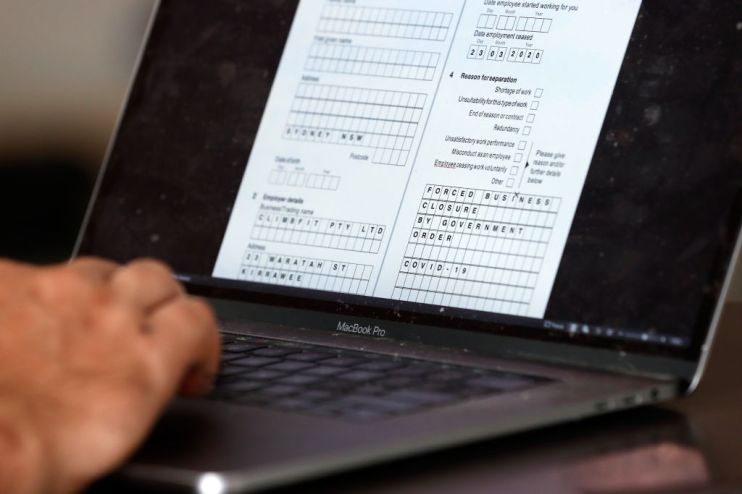Coronavirus: Why the pandemic is a hotbed for cyber attacks

On 14 March, computer systems at the University Hospital Brno in Czech Republic gradually began to fail. The hospital — the second largest in the country and home to one of its key coronavirus testing laboratories — had been hit by a cyber attack.
Several well-known hacker groups have since issued statements vowing not to target medical institutions. Whether they stay true to their word remains to be seen.
But while hospitals would be most seriously affected by cyber attacks during the pandemic, the chaos caused by coronavirus has left the whole of society more vulnerable.
As the threat of coronavirus builds, so too does the risk of attacks by opportunistic criminals hoping to exploit a society in lockdown — and cyber experts are concerned.
Phishing fears
The escalating coronavirus crisis has prompted a wave of online content offering the latest news, information and advice about the virus.
For hackers, this provides the perfect opportunity to launch so-called social engineering tactics such as phishing. This is where unsuspecting victims are tricked into giving away sensitive information such as passwords or bank details.
UK authorities have already reported cases of fraudulent emails that claim to offer local information about coronavirus, as well as fake coronavirus maps that deliver malware targeting sensitive data.
Figures released this week by cyber firm Barracuda Networks revealed a huge surge in email phishing attacks in March, with a growing number of campaigns using coronavirus as a lure to dupe victims into handing over information.
“The use of tactics such as ransomware, malware and phishing by fraudsters is commonplace in modern society,” says Charl van der Walt, head of cybersecurity research at Orange Cyberdefense.
“However, social engineering attacks of this nature are almost certainly going to escalate in the midst of the coronavirus pandemic as hackers continue the trend of using newsworthy topics as a pretext for campaigns.”
Hacking the home office
But the problem is not limited to opportunistic attacks. New social distancing measures have created a more fundamental security weakness for thousands of businesses as their employees log into work from home.
“With coronavirus prevention measures seeing an increasing number of people working remotely, many organisations will be grappling with IT, and particularly security, challenges they have not previously encountered,” says Allen Storey, chief product officer at cybersecurity firm Intercede.
“Chief among those is ensuring that all of those parties accessing their corporate networks are authorised to do so.”
With unsecure home broadband networks overloaded with traffic — and more staff making use of cloud and remote access technologies — the opportunity for hackers has surged.
Coupled with the increased use of connected devices such as smart speakers, cyber experts predict a sharp rise in breaches.
What can businesses do?
With the threats mounting, businesses have been urged to ensure they have adequate cybersecurity measures in place.
The key to blocking phishing attacks is to educate staff on the key indicators of a phishing attack and what they should do if they spot one.
“Never click a link in an email that you weren’t expecting,” says Emmanuel Schalit, chief executive of Dashlane.
“And if you accidentally do: change your password on the site you meant to visit immediately after confirming you’re on the site by typing its URL manually in your browser.”
And as employees log on to unsecure broadband networks, strong passwords and up-to-date software are crucial to avoiding a breach.
“Weak passwords continue to be one of the primary drivers for breaches on a global scale,” says Lance Spitzner, security awareness director at Sans.
“Anyone working at home should be reminded about the need for strong passwords such as passphrases, as well as the use of password managers and multi-factor authentication.”
In addition, businesses have been encouraged to adopt dedicated credential management systems to verify staff members accessing their systems.
“By building in strong, multi-factor authentication methods, such as public key infrastructure into their credential management systems, organisations can be confident that those accessing their corporate networks from remote locations are who they say they are, and have the right to do so,” says Intercede boss Storey.